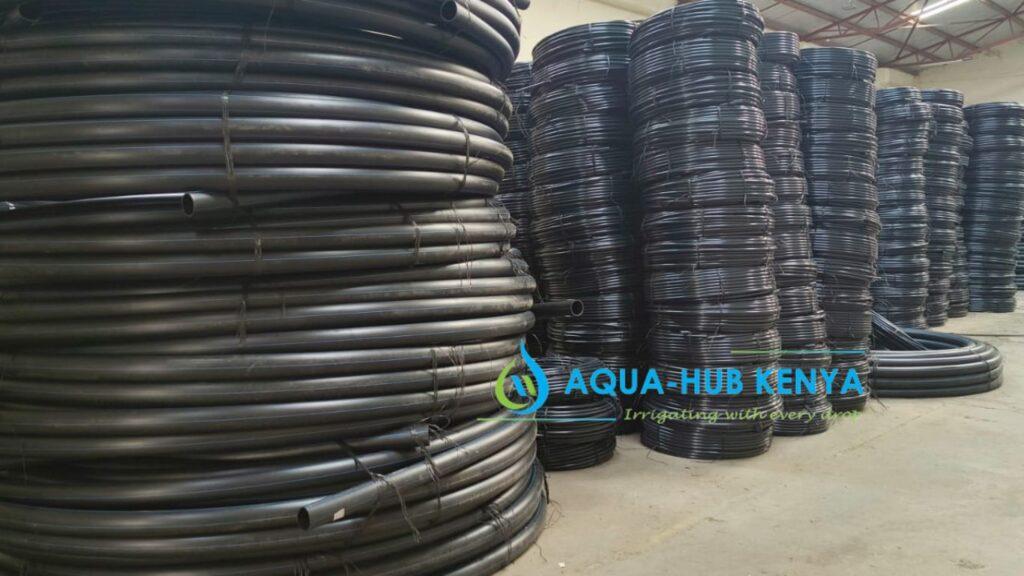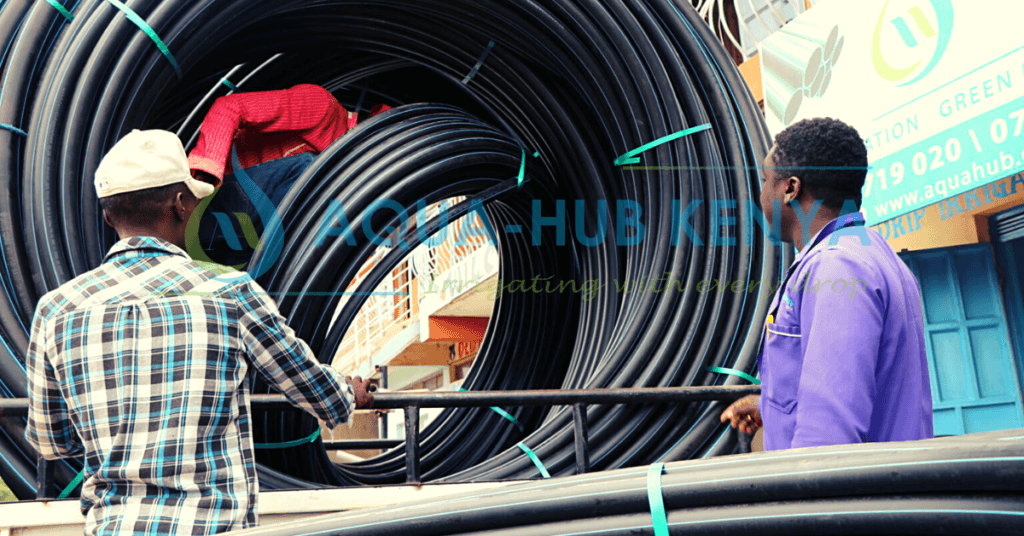HDPE & PVC Pipes in Kenya
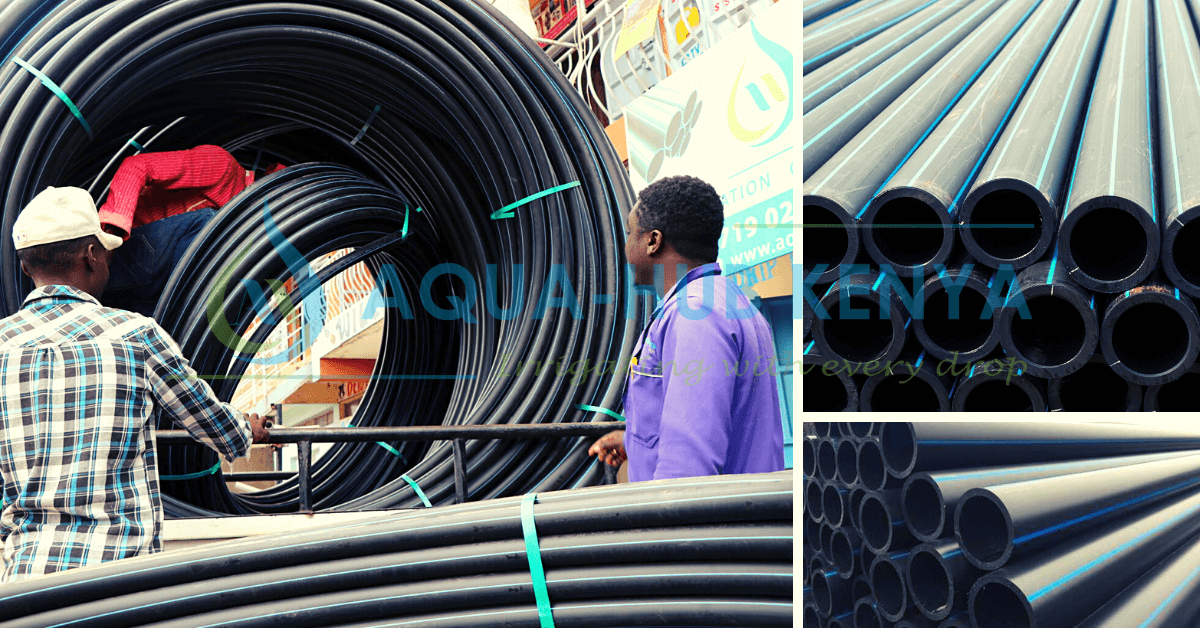
We provide the finest HDPE and PVC pipes in Kenya at competitive prices. We also provide HDPE and PVC pipes and fittings to Kenya for use in irrigation, gas, sewage, and communications conduits. The cost of these pipes varies according to their lengths and diameters. These pipes may be used to pipe industrial liquids like water, oil, and other fluids as well as for irrigation. HDPE and PVC pipes with variable wall thicknesses and lengths of up to 100 meters are produced and sold by Aqua Hub.
What are HDPE & PVC Pipes in Kenya?
HDPE (High-Density Polyethylene) and PVC (Polyvinyl Chloride) pipes are two types of pipes that are commonly used in Kenya for various applications such as water supply, irrigation, drainage, and sewage systems.
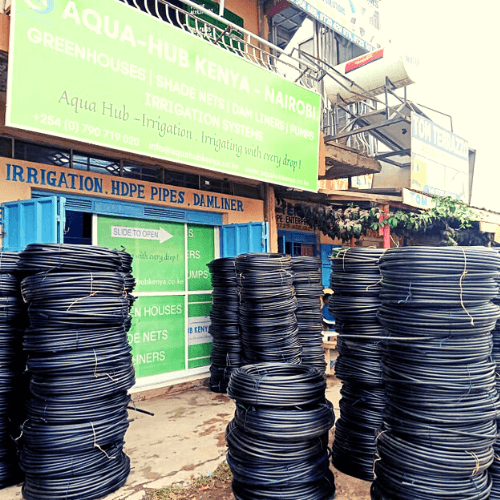
HDPE pipes are known for their strength, durability, and resistance to chemical and environmental corrosion. They are also resistant to abrasion and have a high resistance to impact. HDPE pipes are made from thermoplastic materials and can be produced in a wide range of sizes and pressure ratings. They are also lightweight and easy to install, making them a popular choice for many applications.
PVC pipes are also widely used in Kenya for various applications due to their durability and resistance to corrosion. PVC pipes also have a long service life and are resistant to chemicals, abrasion, and impact. They are also lightweight and easy to install. PVC pipes are made from thermoplastic materials and can be produced in a wide range of sizes and pressure ratings. They are also relatively low-cost compared to other types of pipes.
Both HDPE and PVC pipes have advantages and disadvantages, and the choice of which one to use will depend on the specific application and the requirements of the project. HDPE pipes are more resistant to UV rays and have a longer lifespan, but PVC pipes are more flexible and easier to bend, making them a better option for tight spaces.
It’s important to note that the use of HDPE & PVC pipes and their effectiveness may vary depending on the local soil and weather conditions and the regulations of the area. It is also important to use appropriate fittings and accessories
What is HDPE pipe used for?
HDPE pipes are known for their strength, durability, and resistance to abrasion. They are commonly used for a variety of applications, including:
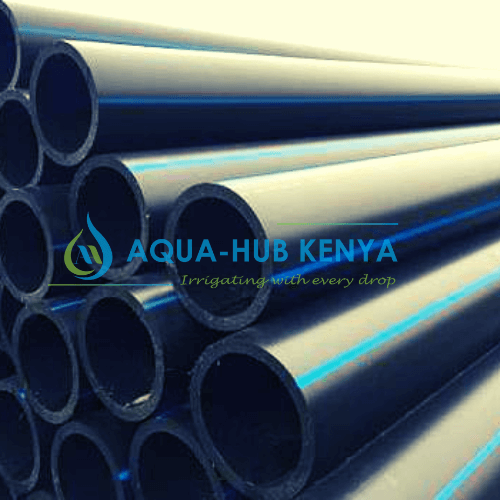
- Water supply: HDPE pipes are widely used for the distribution of potable water and the transportation of wastewater. They also have a high resistance to chemicals and can withstand high water pressure and temperature changes.
- Irrigation: HDPE pipes are used in irrigation systems to transport water to crops. They are lightweight and easy to install, and can also be buried underground without the need for special protection.
- Gas distribution: HDPE pipes are also used to distribute natural gas and propane to homes and businesses. They are able to withstand high pressure and have a high resistance to chemicals.
- Mining: HDPE pipes are used in mining operations to transport slurry and tailings. They are resistant to abrasion and can also withstand the harsh conditions of mining operations.
- Telecommunications: HDPE pipes are used in the telecommunications industry to protect fiber-optic cables. They have a high resistance to chemicals and can be buried underground without the need for special protection.
- Drainage: HDPE pipes are also used in drainage systems to transport stormwater and waste water. They are lightweight and easy to install, and have a high resistance to chemicals and abrasion.
What is PVC pipe used for?
PVC pipes are known for their durability and resistance to abrasion and impact. They are commonly used for a variety of applications, including:
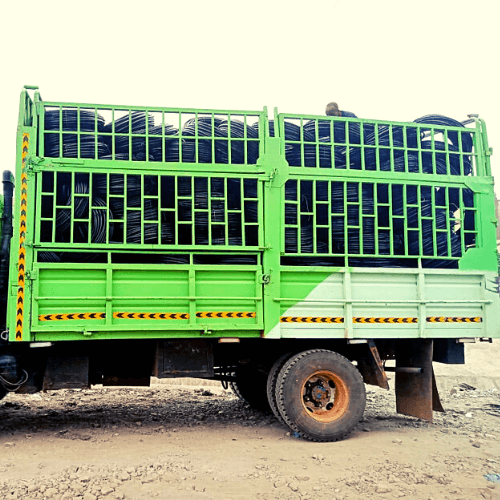
- Water supply: PVC pipes are widely used for the distribution of potable water and the transportation of wastewater. They have a long service life and are resistant to chemicals, making them a popular choice for water supply systems.
- Irrigation: PVC pipes are used in irrigation systems to transport water to crops. They are lightweight and easy to install, and can be buried underground without the need for special protection.
- Drainage: PVC pipes are used in drainage systems to transport stormwater and waste water. They are lightweight and easy to install, and have a high resistance to chemicals and abrasion.
- Sewage: PVC pipes are commonly used in sewage systems for the transportation of waste water. They have a long service life and are resistant to chemicals and abrasion.
- Plumbing: PVC pipes are used in plumbing systems for the transportation of cold and hot water. They are lightweight and easy to install, and have a high resistance to chemicals and abrasion.
- HVAC: PVC pipes are also used in heating, ventilation and air conditioning systems. They are lightweight, easy to install and have a high resistance to chemicals and abrasion.
What are the benefits of HDPE pipes?
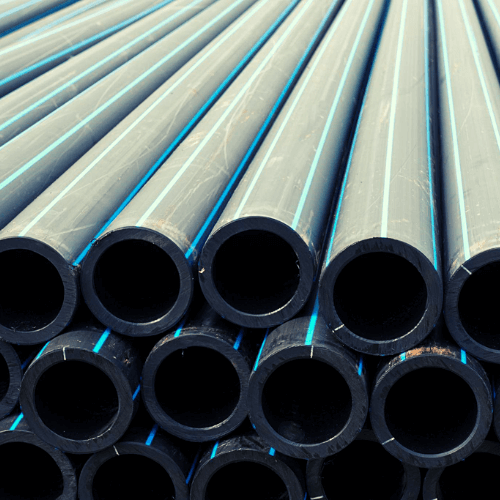
- Durability: PVC pipes have a long service life and are resistant to chemicals, abrasion, and impact. They can withstand high water pressure and temperature changes, making them suitable for a wide range of applications.
- Easy Installation: PVC pipes are lightweight and easy to install, which makes them a popular choice for many applications. They can be buried underground without the need for special protection.
- Low-cost: PVC pipes are relatively low-cost compared to other types of pipes, making them a cost-effective option for many applications.
- Chemical resistance: PVC pipes are resistant to chemicals and are suitable for use in a wide range of environments and applications.
- Flexibility: PVC pipes are flexible and can be bent to a certain degree, making them suitable for use in tight spaces.
- Versatility: PVC pipes can be used for a wide range of applications, including water supply, irrigation, drainage, sewage systems, plumbing and HVAC systems.
- Safety: PVC pipes are safe for potable water supply and food grade applications.
- Environmental friendly: PVC pipes can be recycled, reducing the environmental impact of the pipes.
What is the difference between HDPE and PVC pipe?
Additionally, HDPE pipe is resistant to many chemicals and has a long service life, while PVC pipe is not as resistant to chemicals and has a shorter service life.

